🍪 Hello, we are the cookies!
We're here to make it easier for you to browse, and also to help DUO for a JOB understand how you interact with our site. Is this OK for you?
Continue without acceptingWe're here to make it easier for you to browse, and also to help DUO for a JOB understand how you interact with our site. Is this OK for you?
Continue without acceptingNew Annual Report – Edition 2023!
In the current context of global mobility, we live in a very diverse society. So it is necessary to ensure that our society today is inclusive enough for everyone to find their place and actively contribute and benefit collectively from the benefits of this diversity.
DUO for a JOB was born from a double observation:
By bringing these two groups together, DUO for a JOB aims to help eliminate inequalities in access to the labour market for young people with a migrant background, to recognise the knowledge of our 50+ mentors and to combat discrimination by creating social cohesion, mutual understanding and local solidarity.
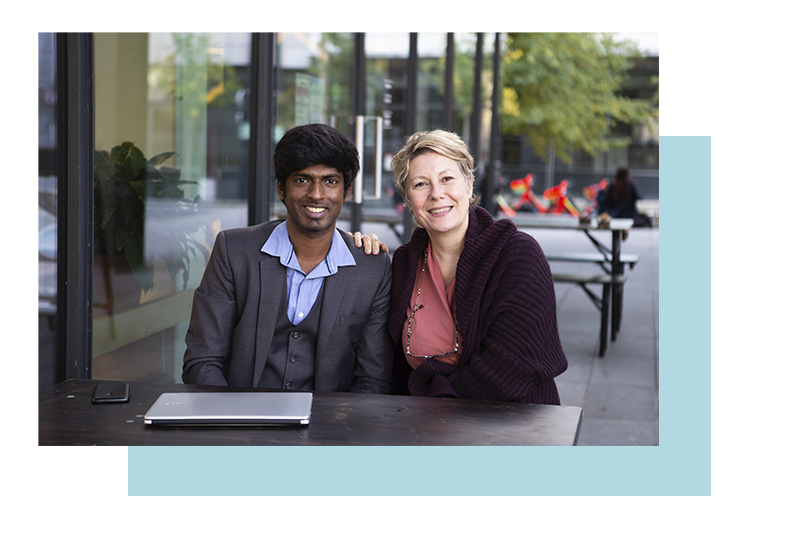
DUO for a JOB organises intergenerational and intercultural mentoring to facilitate access to the job market for young jobseekers while recognizing the value of the experience of people older than 50.
Practically, this means a relationship where an experienced person, “the mentor”, shares their knowledge and expertise with a young person, “the mentee”, in order to allow him/her to develop skills and autonomy and to enable him/her to identify and achieve professional objectives. This relationship (“the duo”) is based on mutual exchange and permanent and reciprocal trust.
Once paired, the mentee and his or her mentor meet for two hours a week for a period of six months.

“With DUO and my mentor, I managed to believe in myself and started doing things instead of thinking how difficult it is. My mentor’s professional advice has worked wonders.“
Anton, mentee at DUO
But beyond the employment results, mentoring also allows these young people to develop many skills that will serve them throughout their lives. After 6 months as a duo, it is estimated that:
90%
feel more independent/autonomous in their job search.
68%
were able to define a career plan with their mentor.
77%
were able to expand their professional and/or social network.
On the one hand, the mentors draw on all the knowledge and experience they have gained throughout their careers, as well as the training and advice they receive from DUO for a JOB, to help the mentees overcome the obstacles in their path. On the other hand, the mentees share with DUO for a JOB their life experiences, their projects, their ambitions and their doubts. Through their eyes, they give them a unique insight into «their reality».
It’s a real «win-win» situation that allows each mentor to remain active, feel useful, question their prejudices, value their skills and develop new ones. When asked:
84%
improved their coaching skills (active listening, empathy, etc.).
61%
found that the DUO experience added value to their professional life.
96%
feel more useful as an active member of society.
The key to the success of DUO for a JOB’s mentoring program lies in the implementation of a methodology and qualitative and effective support based on eight main steps.
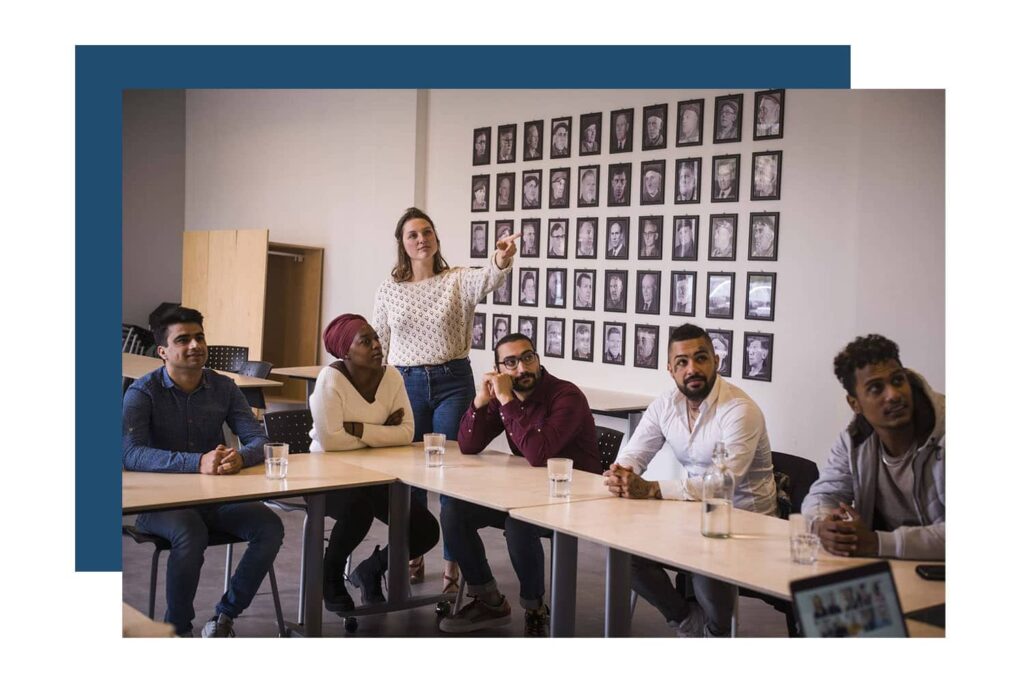
1. Information session
Information sessions are an opportunity to present the project, to clarify the roles of each and to answer any possible questions.
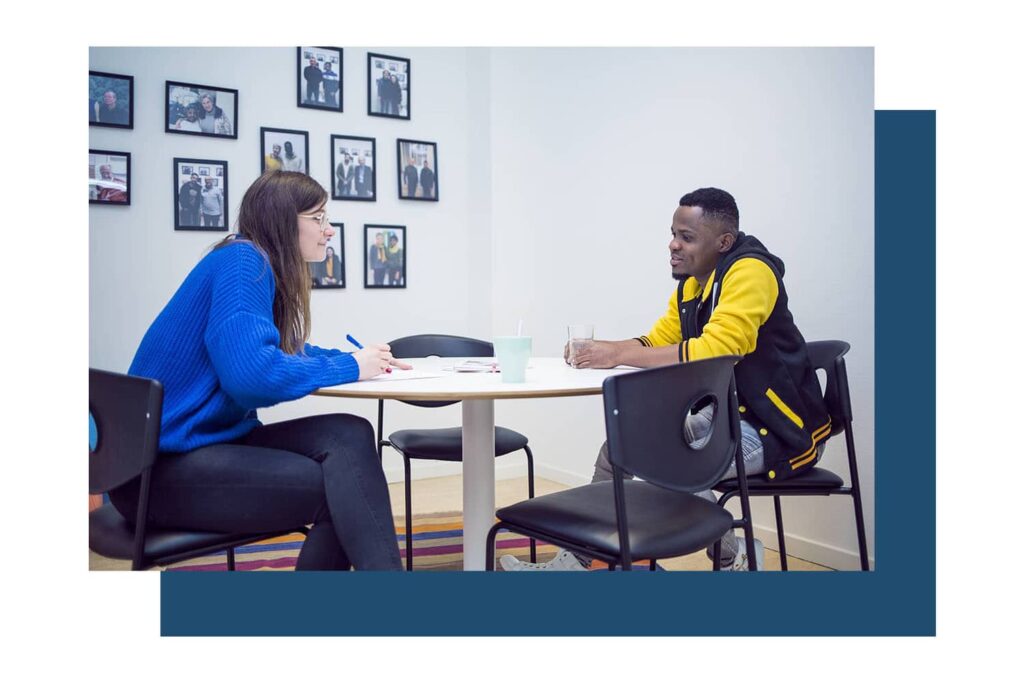
2. Individual interview
If interest in the project prevails, future mentors / mentees then meet an association coordinator in order to learn more about their experience and expectations.
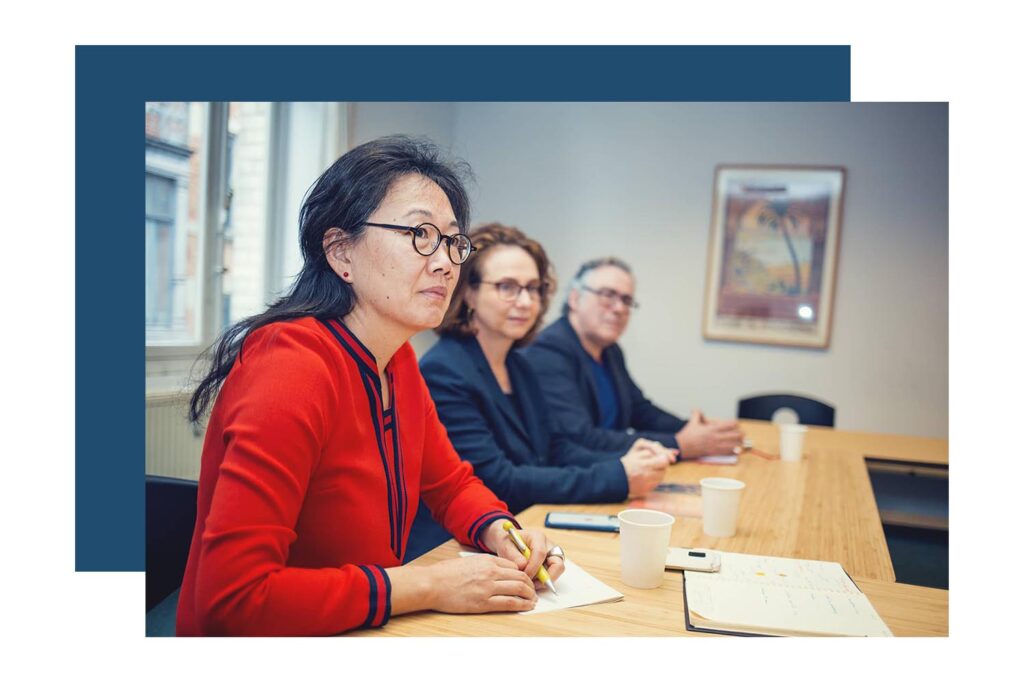
3. Mentor training
New mentors follow an initial training course to provide them with a basic tool kit on the do’s and don’ts of being a mentor.
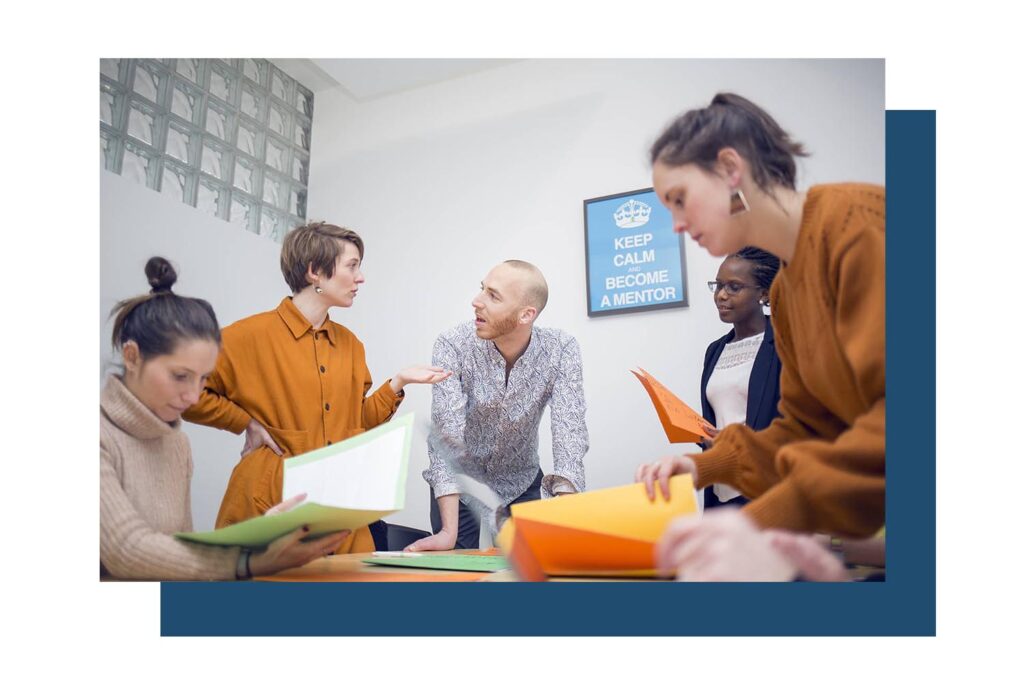
4. Matching
On the basis of different criteria (sector of activity, languages spoken, personality, availability, etc.), and taking into account all respective needs and skills, the coordinators constitute the new duos: this is the matching session.
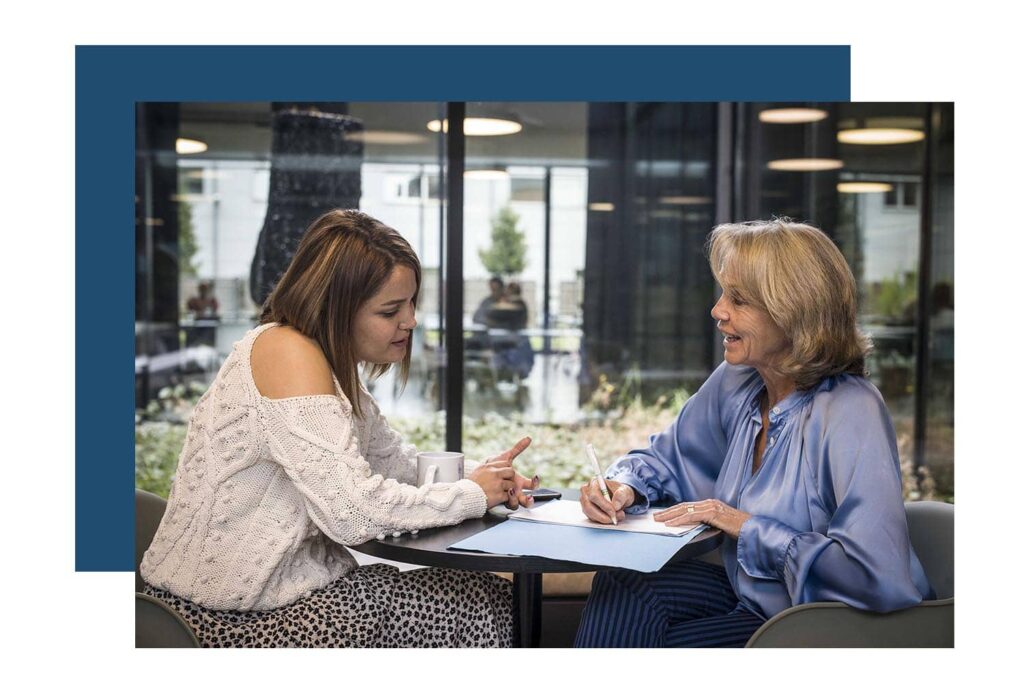
5. First meeting
The first meeting is an opportunity for everyone to get to know each other. After this meeting both the mentor and the mentee will decide independently whether they want to work together or not.

6. Signing of the Agreement and the Charter
If the mentee and the mentor confirm that they want to continue together, a second meeting is organised to sign the mentoring agreement that clarifies the framework and the commitments of each party, and “officially” marks the beginning of the support period.

7. Period of mentoring
The accompaniment period, during which the pairs will meet once a week, lasts a maximum of six months. Each duo is accompanied by a coordinator from the association.
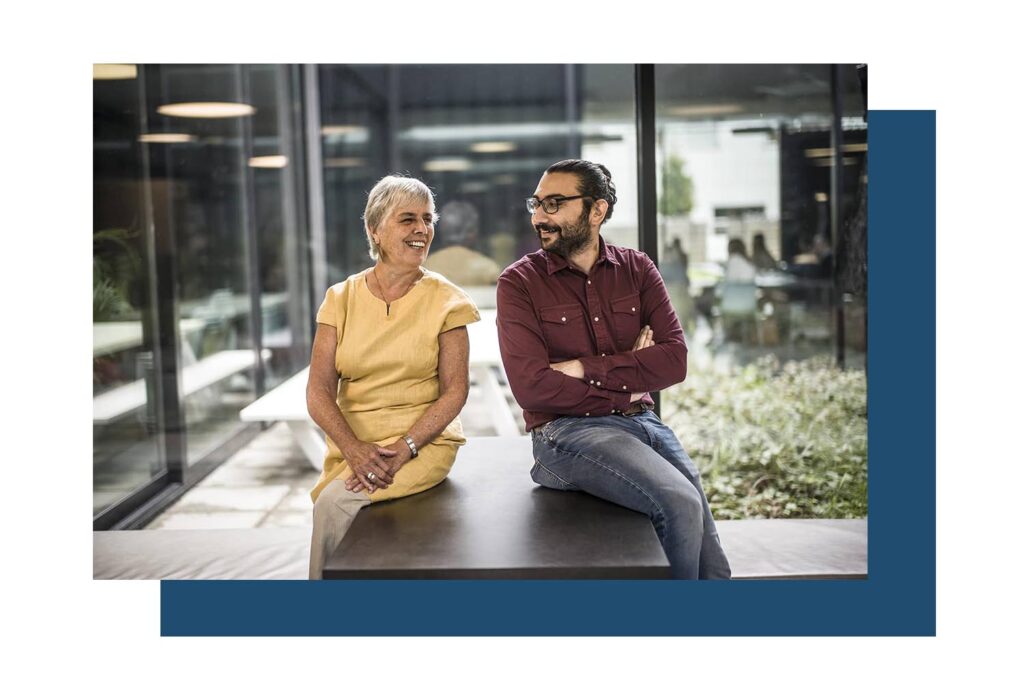
8. Evaluation
At the end of the 6-month period, the duo is invited to assess whether the programme has met their expectations and whether the objectives they set themselves have been achieved.
“Mentoring is a win-win relationship in which the mentor learns a lot. Mentoring at DUO adds the dimension of an introduction to the issue of young migrants and their specific difficulties in accessing to employment.“
Yves, mentor at DUO

